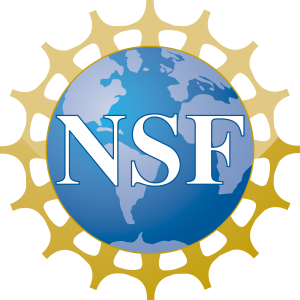
The National Science Foundation (NSF) Engineering Directorate‘s Faculty Early Career Development (CAREER) program has awarded 156 early career engineering faculty with at least $500,000 for their plan to make advances in engineering.
The CAREER program, which extends across all of the agency’s science and engineering directorates, allows promising junior faculty to pursue outstanding research and excellence in education while integrating both. Awardees have the flexibility to explore unexpected new terrain uncovered in the course of their research.
A number of these CAREER winners have ties to computer science:
- CAREER: Integrated Research and Education on Delta-Sigma Based Digital Signal Processing Circuits for Low-Power Intelligent Sensors
- Principal Investigator: Wei Tang, New Mexico State University
- From the Abstract: The research objective of this CAREER proposal is to apply Delta-Sigma based Integrated Circuit (IC) design in Digital Signal Processing (DSP) to solve circuit power and area problems for the next-generation of low-power intelligent sensors. The proposed research will have a broad impact on next-generation pervasive computing and ubiquitous sensing applications.
- CAREER: Cyber-Physical Situational Awareness for the Power Grid Infrastructures
- Principal Investigator: Hao Zhu, University of Illinois at Urbana-Champaign
- From the Abstract: The objective of this CAREER project is to equip grid operators with better tools to monitor the underlying cyber-states, particularly focusing on the operational quality and security of the cyber layer. Its successful completion will transform the grid operational paradigm by providing integrated situational awareness capabilities of both cyber and physical assets, towards more efficient, secure, and resilient power grid infrastructures.
- CAREER: Propagation Modeling and Measurements for THz Wireless Chip-to-Chip Communications
- Principal Investigator: Alenka Zajic, Georgia Tech
- From the Abstract: New applications such as self-driving cars, smart-homes, and/or industrial automation will all require cloud computing that relies on many fast computers in data centers. However, even today, cable management in data centers is a serious challenge and limitation of number of pins on the processor is becoming a bottleneck in designing faster computers. To alleviate these problems, this project explores ways to design wireless links at terahertz frequencies that can provide data rates of hundreds of gigabytes per second that would alleviate “cable management” and “pin-count” problems.
- CAREER: Robust Methods for High-Dimensional Signal Processing under Geometric Constraints
- Principal Investigator: Yuejie Chi, Ohio State University
- From the Abstract: The objective of this CAREER project is to develop a unified framework, including the design of provably robust and efficient algorithms, characterization of the fundamental limits, for signal reconstruction under a variety of practical considerations such as imperfect calibrations, sensor drifts, mutual coupling, corruptions and missing data during data acquisition.
Visit the NSF award database for the list of FY 2017 NSF Engineering CAREER grantees and see a map of where they are located. The full proposal deadline for CAREER awards in CISE is July 19, 2017.









